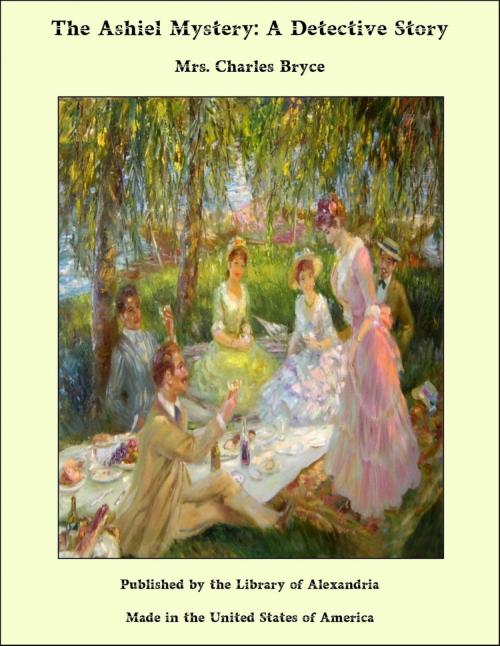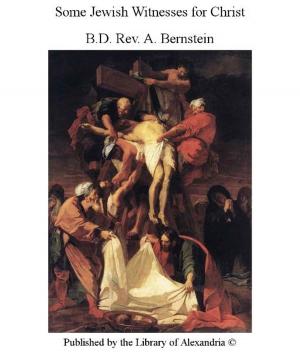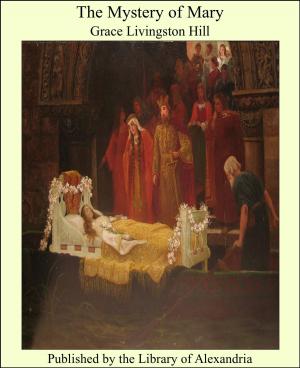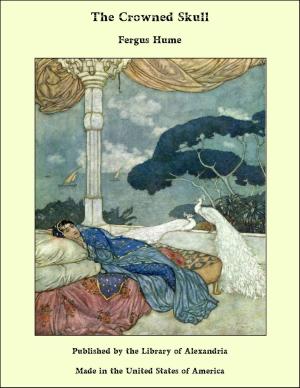The Ashiel Mystery: A Detective Story
Nonfiction, Religion & Spirituality, New Age, History, Fiction & Literature| Author: | Mrs. Charles Bryce | ISBN: | 9781465622013 |
| Publisher: | Library of Alexandria | Publication: | March 8, 2015 |
| Imprint: | Language: | English |
| Author: | Mrs. Charles Bryce |
| ISBN: | 9781465622013 |
| Publisher: | Library of Alexandria |
| Publication: | March 8, 2015 |
| Imprint: | |
| Language: | English |
When Sir Arthur Byrne fell ill, after three summers at his post in the little consulate that overlooked the lonely waters of the Black Sea, he applied for sick leave. Having obtained it, he hurried home to scatter guineas in Harley Street; for he felt all the uneasy doubts as to his future which a strong man who has never in his life known what it is to have a headache is apt to experience at the first symptom that all is not well. Outwardly, he pretended to make light of the matter. "Drains, that's what it is," he would say to some of the passengers to whom he confided the altered state of his health on board the boat which carried him to Constantinople. "As soon as I get back to a civilized sewage system I shall be myself again. These Eastern towns are all right for Orientals; and what is your Muscovite but an Oriental, in all essentials of hygiene? But they play the deuce with a European who has grown up in a country where people still indulge in a sense of smell." And if anyone ventured to sympathize with him, or to express regret at his illness, he would snub him fiercely. But for all that he felt convinced, in his own mind, that he had been attacked by some fatal disease. He became melancholy and depressed; and, if he did not spend his days in drawing up his last will and testament, it was because such a proceeding—in view of the state of his banking account—would have partaken of the nature of a farce. Having a sense of humour, he was little disposed, just then, to any action whose comic side he could not conveniently ignore. When he arrived in London, however, he was relieved to find that the specialists whom he consulted, while they mostly gave him his money's worth of polite interest, did not display any anxiety as to his condition. One of them, indeed, went so far as to mention a long name, and to suggest that an operation for appendicitis would be likely to do no harm; but, on being cross-examined, confessed that he saw no reason to suspect anything wrong with Sir Arthur's appendix; so that the young man left the consulting-room in some indignation. He remembered, as soon as the door had closed behind him, that he had forgotten to ask the meaning of the long name; and, being reluctant to set eyes again on the doctor who had mystified him with it, went to another and demanded to know what such a term might signify.
When Sir Arthur Byrne fell ill, after three summers at his post in the little consulate that overlooked the lonely waters of the Black Sea, he applied for sick leave. Having obtained it, he hurried home to scatter guineas in Harley Street; for he felt all the uneasy doubts as to his future which a strong man who has never in his life known what it is to have a headache is apt to experience at the first symptom that all is not well. Outwardly, he pretended to make light of the matter. "Drains, that's what it is," he would say to some of the passengers to whom he confided the altered state of his health on board the boat which carried him to Constantinople. "As soon as I get back to a civilized sewage system I shall be myself again. These Eastern towns are all right for Orientals; and what is your Muscovite but an Oriental, in all essentials of hygiene? But they play the deuce with a European who has grown up in a country where people still indulge in a sense of smell." And if anyone ventured to sympathize with him, or to express regret at his illness, he would snub him fiercely. But for all that he felt convinced, in his own mind, that he had been attacked by some fatal disease. He became melancholy and depressed; and, if he did not spend his days in drawing up his last will and testament, it was because such a proceeding—in view of the state of his banking account—would have partaken of the nature of a farce. Having a sense of humour, he was little disposed, just then, to any action whose comic side he could not conveniently ignore. When he arrived in London, however, he was relieved to find that the specialists whom he consulted, while they mostly gave him his money's worth of polite interest, did not display any anxiety as to his condition. One of them, indeed, went so far as to mention a long name, and to suggest that an operation for appendicitis would be likely to do no harm; but, on being cross-examined, confessed that he saw no reason to suspect anything wrong with Sir Arthur's appendix; so that the young man left the consulting-room in some indignation. He remembered, as soon as the door had closed behind him, that he had forgotten to ask the meaning of the long name; and, being reluctant to set eyes again on the doctor who had mystified him with it, went to another and demanded to know what such a term might signify.















